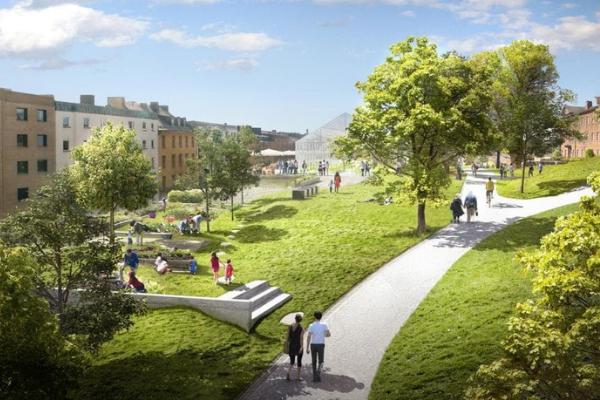Economic crisis, upheaval of lifestyle habits, almost zero socialization: these are the changes and negativities we are subjected to due to the Covid emergency.
But these are not only the changes that Covid has brought about, our needs and requirements have also changed.
The need to live in comfortable spaces, surrounded by greenery and where they cannot be missing entertainment and co-working spaces.
This is what a comparative investigation revealed Arup carried out among 5,000 citizens of Milan, Berlin, London, Paris and Madrid.
There is an important change of direction in the mood of people who have experienced the lockdown in large metropolises.
To give some numbers as a yardstick, in Milan 39% of the inhabitants considered moving city in the first lockdown and 50% of the Milanese are now more inclined to work from home.
In general, all interviewees recognized great improvements in liveability in cities thanks to the reduction in traffic and the consequent reduction in air pollution.
The research, called Arup's City Living Barometer, took into consideration various aspects that make a city truly livable and, among these, considered an important element of quality of life the fact that essential structures can be reached on foot or by bicycle, in no more than 15 minutes from your home.
According to Arup, the fundamental elements that lead to a livable city in the post-Covid era are: widespread pedestrian centres, planting of more trees, public play spaces for the little ones and social spaces for the older ones, a mix of urban functions and the use of technology to build digital models.
Furthermore, there is no lack of desire to return to sharing a model of "living in community" that was now thought to be lost.
Therefore make room for sharing spaces and services, such as neighborhood co-working and neighborhood sharing.
«Rethink the ground floors of buildings to increase the active fronts in which to insert services for the community. Introduce spaces for common use in newly built buildings, to be considered as an extension of the home and in which to promote forms of neighborhood co-working, play and leisure spaces. And again, encouraging organized forms of neighborhood communities in new urban developments, with dedicated places that help create a greater sense of identity (also with apps that promote the availability of events, services, spaces and resources available)".
These are the three proposals of Stefano Recalcati, Associate Director of Arup Italia, during the presentation of the research.
All these elements lead to a common desire: to have quality spaces that put people's needs at the center and the desire to experience their city in a different, deeper and certainly greener way!

